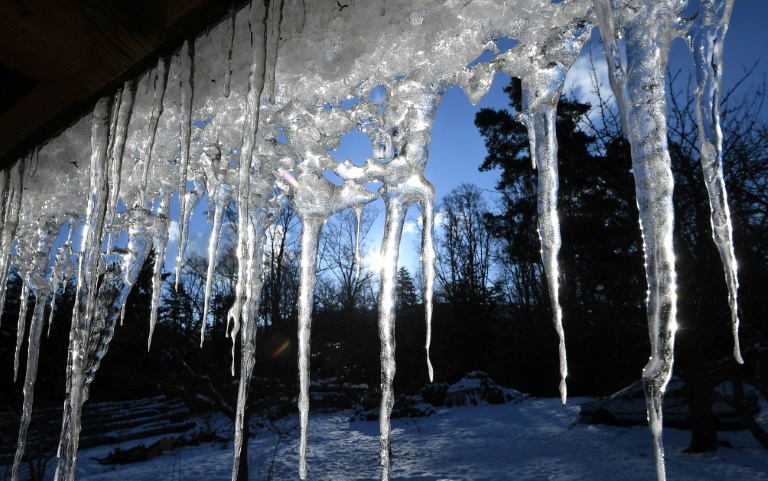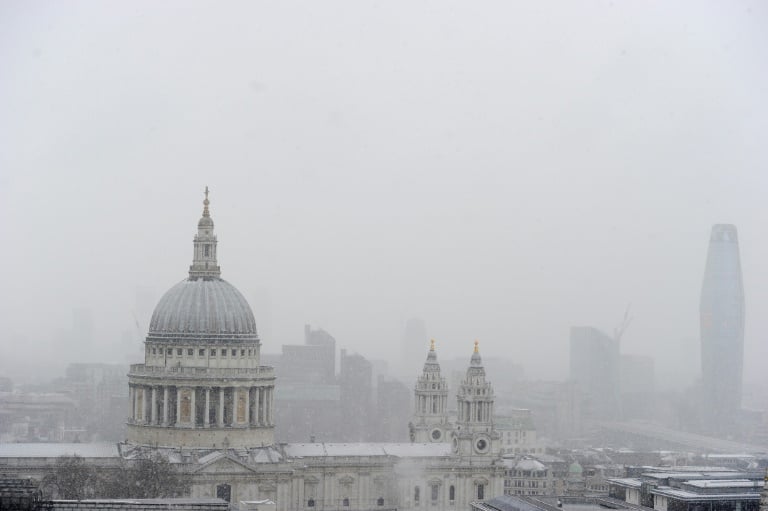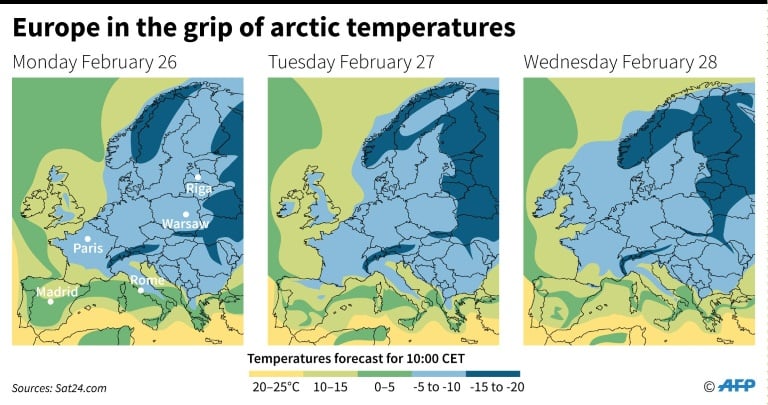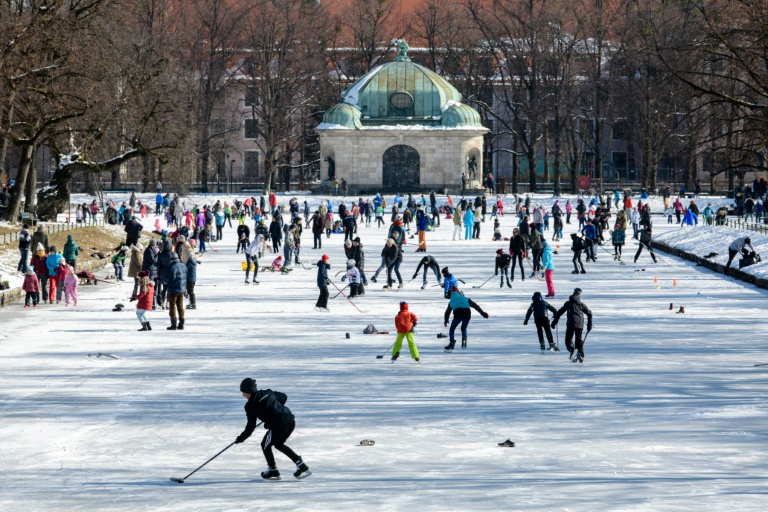‘Forever begins now’: Selena Gomez is officially off the market
The “Beast from the East”, as Britain’s media have named it, is expected to bring cold air from Russia over the next few days that will make it feel even chillier than thermometers indicate.
The toll from the icy weather has been mounting, with two people dying in Poland since Saturday, bringing the winter’s toll to 48 since November, according to the centre for national security.
Three people in Lithuania have also died due to exposure over the past three days, the Baltic News Service (BNS) reported, as weekend temperatures plunged to minus 24 degrees Celsius (minus 11 degrees Fahrenheit).

In France, temperatures are to drop to minus 10 Celsius but feel as low as minus 18
In France, where temperatures were forecast to drop to minus 10 C and feel as low as minus 18 C over the coming days, fears ran high for people living on the streets.
On Sunday, a 35-year-old homeless man was found dead in the southeastern city of Valence, and two days earlier, a 62-year-old man died in his cabin in the woods outside Paris.
French officials have opened emergency shelters for the homeless, with national forecaster Meteo France saying the so-called “Moscow-Paris” cold snap will peak on Tuesday and Wednesday.
– ‘Coldest period in years’ –
Overnight, Rome saw its first snowfall since February 2012, with about three to four centimetres (1.2 to 1.6 inches) settling on the ground.

Snow falls on St Paul’s Cathedral in London as the so-called “Beast from the East” takes hold
Schools were closed in the Italian capital as local authorities opened several train stations as emergency shelters for the homeless, but no more snow is expected despite a forecast low of minus 6 C.
In the northern city of Turin, heavy snow had on Sunday forced the postponement of a Serie A football game between Juventus and Atalanta.
In Britain, snow was falling in eastern England and was expected to spread.
“This week looks like being the coldest period we have had in the UK for a number of years,” Britain’s weather service, the Met Office, said on Sunday, warning of travel delays.
“Parts of England and Wales are likely to see their coldest spell of weather since at least 2013 — perhaps 1991,” said the Met Office’s chief forecaster Frank Saunders.
– Homeless rounded up –
In Belgium, a local mayor in a municipality of Brussels ordered homeless people to be forcibly detained if they refused to go to shelters.

A map with forecasts of below-freezing temperatures in northern Europe for Monday, Tuesday and Wednesday
Etterbeek mayor Vincent De Wolf said the cold was a “major risk”, stressing that it was his responsibility to avoid potential deaths with temperatures set to drop to minus 15 C on Wednesday night.
Snow has disrupted travel in the Netherlands, where the chill has been labelled “the Siberian bear” and where a low of minus 17 C is expected on Thursday.
Heavy snow closed numerous motorways across Croatia, including those leading to the Adriatic coast, which experienced rare snowfall that also interrupted ferry services between the islands.
Russia itself was not spared, with its meteorological service warning of “abnormally cold” temperatures of between minus 14 C during the day and minus 24 C overnight.
– Surf’s up in Munich –
In Berlin, overcrowding was feared in homeless shelters after 95 percent were full overnight, local public radio RBB said, with temperatures seen dropping to minus 20 C in parts of Germany.

People play ice hockey on the frozen canal in Munich
And police reported a spike in accidents on icy roads, with around 100 crashes in the northern city of Luebeck alone on Monday morning and 75 in the port city of Hamburg.
Undeterred by the icy conditions, surfers in thick wetsuits rode Munich’s famous continuous wave of the Isar River’s Eisbach channel on Sunday morning, ZDF television showed.
In Sweden, where the cold snap coincided with schools’ winter sports break, most were happy to see the snow, with temperatures ranging from minus 5 C in Stockholm to minus 20 C in the mountains near Ostersund, where many Swedes were spending ski holidays.
However, the snowfall did cause about 20 flights to be cancelled at Stockholm’s Arlanda airport, primarily to European destinations, according to operator Swedavia.
In Slovenia, the motorway connecting capital Ljubljana and the port of Koper was closed near the coast due to the infamous “bora” winter wind that has been blowing with speeds of more than 100 kilometres per hour (60 miles per hour).
Bulgaria’s weather service urged people to avoid non-emergency travel after temperatures fell to minus 7 C in capital Sofia.
In parts of Austria, temperatures fell to minus 20 C, but some in Vienna didn’t mind with special cross-country skiing courses set-up in the capital’s parks.
However, officials warned against skating on the Danube river, which had frozen over in some places, saying there was “a large probability the ice will break”.
burs-dl/hmw
Download our app and read this and other great stories on the move. Available for Android and iOS.